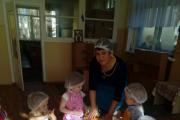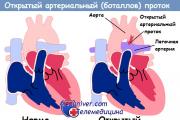What payments are due to low-income families? Benefits for low-income families
The question of how and in what amount to pay benefits to low-income families in 2019 is still acute for government authorities at the federal and regional levels.
The number of families classified as low-income is increasing every year.
Under these conditions, the government chose new principle providing assistance, focusing on its targeting, which will allow more efficient spending budget funds and direct them to those who really need it.
Support similar families, including families with children, is becoming increasingly selective. Experts note a continuing shift away from the principle of categorization in the issue of social support for families in need.
Which families can be recognized as low-income in 2019?
In accordance with the current law “On the subsistence level in the Russian Federation” No. 134-FZ dated October 24, 1997, the average per capita income of each member of a low-income family cannot be lower living wage, which is installed in the region of residence.
Citizens who believe that they can receive cash benefits must independently contact the social security department and document their right to receive assistance.
Formula for calculating total income: ([total family income] / ) / [number of people in the family].
The state supports the following categories of families:
- two-parent families with an average income below the minimum;
- single-parent families without one parent;
- large families (3 children or more).
The calculation period of 3 months is due to the fact that the level of the cost of living in the region is determined once a quarter.
Which relatives can be included in the family?
According to the law, the following can be united into one family:
- single spouses;
- spouses and natural children;
- spouses and adopted, adopted or guardianship children;
- grandparents and grandchildren;
- stepfather (stepmother) and stepsons (stepdaughters);
- a citizen who has no close blood relatives.

If the social security authorities confirm the family’s need according to the established criteria, the family receives the right to benefits and benefits established by law.
What documents do you need to collect to receive benefits?
The required package of documents to classify a family as low-income includes:
- identification documents of family members (passports of parents and their copies, birth certificates of children under 14 years of age);
- marriage/divorce registration document;
- an archival extract in the passport office from the house register about the family composition;
- certificates of income of able-bodied family members for the past 3 months;
- bank account information for transferring funds;
- employment documents: work book or a certificate from the employment center;
- if necessary, a certificate of disability.
In what cases can a family not be recognized as low-income?
Low total family income is the main, but not the only criterion for determining families in need of social support.
A family cannot claim compensation if:
- able-bodied parents do not work, are not on the labor exchange, or abuse alcohol;
- spouses live separately from each other, but are not divorced;
- deliberately false data was provided to the social security authorities.

What social benefits are provided to low-income families?
Cash benefits for needy families can be divided into 4 types:
- social benefits for the poor;
- social scholarships;
- children's social benefits;
- benefits for large families;
- additional benefits and benefits.
1. Social benefits
The amount of monthly social benefits is set by the regional authorities and is related to the cost of living. In Moscow for the 4th quarter of 2017 it was 15,092 rubles and 10,715 for pensioners.
2. Student benefits
The state also undertakes to social benefits for students. Their minimum size is 730 rub. per month.
A low-income citizen from the following categories can apply for a scholarship: disabled children, disabled people of groups I and II, orphans, those who have served military service or who served at least 3 months in the Ministry of Internal Affairs, as well as persons who were exposed to radiation or received military injuries.
3. Child benefits
They are divided into the following categories depending on the age of the child:
- before reaching 1.5 years;
- before reaching 3 years of age;
- before reaching 16 years of age;
- before reaching 18 years of age.
The amount of compensation depends on the category. The benefit amount for up to 1.5 years in 2019 is equal to 40% of the average monthly salary.

Minimum size for non-working parents for the first child is 4512 rubles. Assistance for a child under 3 years of age is equal to the child's subsistence level in the region.
The amount of child benefits up to 16 years of age is established by the subject of the Federation and can range from several hundred to thousands of rubles.
Unfortunately, continuous receipt of benefits requires re-registration every six months. Payment up to 18 years of age is possible if the child continues studying at school after 16 years of age and goes to grades 10 and 11.
4. Large families
Large families, depending on the region, can receive additional assistance in addition to one-time benefits for children, and can also qualify for compensation for the costs of rent, housing and communal services, transportation and food for the child.
To send a first grader from large family One-time assistance is paid to the school.
The state also reimburses the monthly expenses for purchasing stationery for the student.
If there are more than 10 children in a family, then it is possible to receive annual benefits for Knowledge Day in the amount of 15,000 rubles. and Family Day in the amount of 10,000 rubles. one-time assistance to send a child to school
5. Fringe benefits and benefits
Low-income families may also receive additional benefits or benefits.
The state pays extra to families in the event of the loss of a breadwinner for each child from a military family, accrues maternity benefits to the mother, and provides benefits for medical care, provides free access to cultural and entertainment institutions for children. Separately, other types of assistance may be provided by decision of regional authorities.
Video: Child benefits for the poor:
The social reform carried out in 2017 will affect not only pensioners, but also low-income citizens. Families will be able to count on greater support from the state. Some benefits will increase in amount.
Let's look at what innovations are already in effect across the country.
What assistance is available to low-income families in 2019 - all the benefits and allowances
Help low-income families, which is provided by the state, is carried out at the federal and regional levels. It can be expressed not only in cash payments ah, but also providing people with food, clothing, and medicine.
The issue of providing assistance to the poor is very pressing in 2019. After all, the quantity low-income families, according to Rosstat, increases noticeably every year.
Help for the poor can be not only cash payments, but also clothing, baby food, and groceries.
In 2019 it is provided one-time assistance to women from low-income families
Moreover, please note that these benefits are provided to pregnant and breastfeeding women, as well as to parents raising children in a single-parent family:
1. Benefit paid provided that the woman is registered with antenatal clinic up to 12 weeks of pregnancy.
A monthly amount will be paid to those who were fired due to:
- Bankruptcy and liquidation of an organization.
- Closing of a company that provided the services of a lawyer and notary.
- Closing an individual entrepreneur.
- A company that requires a license to carry out professional activities ceases to operate.
3. One-time allowance for the mother at the birth of the baby
Please note that the payment is due to the mother, regardless of which child she gave birth to. When each child is born, a sum of money is transferred to the parent’s account.
4. Pregnant wife of a serviceman , who is in the third trimester, is entitled to a payment in the amount of 24.5 thousand rubles.
5. For children under guardianship, the parent is paid an amount of 15.5 thousand rubles.
Please note that this amount is the so-called parent’s salary.
Also in the new year 2019 there is such monthly assistance to families with children
- Maternity benefit for working citizens. As a rule, it is provided only to mothers who worked. The employer is obliged to pay the employee a monthly amount equal to the established average earnings. IN different regions This guide is different.
- Allowance for a child less than 1.5 years old. One of the parents is entitled to a cash payment in the amount of 40% of average earnings.
- Payment for a child whose age is not more than 3 years. In accordance with Decree of the Government of the Russian Federation No. 1291, approved on November 30, 2015, the amount of payment is the amount of the subsistence minimum. Remember, this is the amount that must be paid every month for the third or next born child in the family.
- The child of a serviceman, conscript (not conscript) is also entitled to monetary compensation. The benefit can be used by parents until the child turns 3 years old.
- The “survivor’s” payment is payable to the child of a serviceman.
- For a child under guardianship , must pay additional benefits in an amount close to the subsistence level. This amount is different in the constituent entities of the Russian Federation.
- Payment for a child whose age is from 7 to 16 or 18 years , is due to all low-income parents. For children, they pay an amount ranging from 100 rubles to a thousand.
- Benefits for low-income families. Every month, a low-income family receives a payment. Its size is set differently in each region, and may not exist at all.
More provided housing subsidy, other benefits and benefits.
New types of benefits and benefits in 2019 for low-income families
Innovations will affect, first of all, the educational sphere.
Firstly, a child from a wealthy family will be able to enter state universities under the following conditions:
- Under 20 years old.
- Successfully passed the Unified State Exam or passed the entrance examination, gaining a certain number of points (passing minimum).
- The parent has a group 1 disability and is the only breadwinner in the family.
Secondly, children from low-income families younger age will be sent to kindergartens without a queue.
In addition, for a child under 6 years old are required to provide the necessary medications.
And also, when studying at school, the child will be given the opportunity to:
- Free two meals a day in the canteen.
- Get school and sports uniforms.
- Use travel tickets. The discount will be 50%.
- Visit exhibitions and museums for free once a month.
- Visit a sanatorium. If a child is sick, he must be given a ticket once a year.
Parents in 2019 can count on:
- Preferential working conditions ( additional leave, shortened working hours).
- Exemption from payment upon registration of individual entrepreneurs.
- Purchasing a mortgage with preferential terms payments
- Receipt garden plot or apartments under a social rental agreement.
What documents are needed and where to go to get help for low-income families in 2019?
Before running to the social security department, you should collect package of documents, on the basis of which your family will receive the status of low-income or low-income.
Prepare:
- Parents' passports, originals and copies.
- Child's birth certificate.
- A statement written by hand or typed on a computer. You can create the document yourself .
- A certificate confirming your marriage or divorce if the family is single-parent.
- Documents about your family property. For example, about a car, real estate.
- An extract containing information about the registered residents in your household or apartment.
- A paper confirming the composition of your family.
- A certificate from work about income for the last 3 months.
- If you are not working and have contacted the employment center, you will need a document stating that you cannot get a job.
- Certificate of disability, if necessary.
Within 10 days workers The Social Security Administration must review your application and make a decision. It happens that the period increases to 1 month.
A low-income family is considered to be a family whose average total income, divided by each family member, is below the minimum subsistence level in the corresponding constituent entity of the Russian Federation.
To establish this fact, you should submit a corresponding application to the social protection authorities at your residence address.
Who is entitled to benefits in 2019
State material support turns out to be a family that has officially entered into an agreement with the social security authorities and has proven its low-income status.
It is immediately worth noting that at the federal level, assistance to low-income citizens is not provided. Regions independently develop regulations regulating concepts that define legal status the poor. Both citizens living alone and an entire family can be recognized as poor.
Of course, family members include spouse, children, parents, brothers and sisters. These are also adoptive parents and adopted children. Grandparents, grandchildren, stepfather and stepmother, stepdaughter and stepson, guardian and ward will also be considered family members. Provided that they all live in the same housing and run a joint household.
To be recognized as a family in need, certain conditions must be met:
- Living together and maintaining a common household. If the parents have not registered their marriage or have registered it but do not live together, the family will not receive the status of a needy one.
- All adult able-bodied family members must work or be registered as unemployed, with the exception of women on maternity leave.
- A family in which the parents are able-bodied but do not work due to alcoholism or drug addiction will not be recognized as low-income.
What is average per capita income
Material support for low-income groups of the population is provided at the regional level.
Benefits for low-income families are assigned in various sizes, depending on the subject of the Russian Federation and taking into account previously paid benefits.
Benefit for low-income families with children under three years of age
Until one and a half years, the mother receives benefits from the employer (if there is official employment in the amount of 40% of her salary) or from the state, taking into account the minimum wage.
When the child reaches 1.5 years of age, payments stop. All that remains is compensation payment- 50 rubles, which can be received monthly until the child turns 3 years old. In this regard, in some regions a surcharge has been introduced for low-income families with children aged 1.5 to 3 years.
In each region, the size and timing of payments differ.
For example, in Moscow the amounts of payments in 2019 were as follows:
- Full-fledged family - 4000 rubles;
- Single mother (single father) - 6,000 rubles;
- One of the parents does not pay child support or is a conscript - 6,000 rubles;
In the Moscow region, the amounts of payments in 2019 were:
- Full-fledged family - 4333 rub.
- Single mother (single father) - 6606 rub.
- One of the parents does not pay child support or is a conscript - 5185 rubles.
For St. Petersburg, the amounts of payments in 2019 were:
- Full family - 1005 rub.
- Single mother/father - 1451 rub.
- One of the parents does not pay child support or is a conscript - 1,451 rubles.
Allowance for children under 18 years of age
After the child reaches the age of 1.5 years, low-income parents can only count on this type payments
Criteria for assigning such payments:
- family income is below the subsistence level in the region;
- the benefit is assigned to each child under 18 years of age;
- the region allocates funds for the payment;
- The benefit amount is reviewed annually.
Payments to large low-income families
This benefit was established with the aim of increasing the birth rate in the regions. Families can receive payments:
- for every 3rd and subsequent child;
- in which the child or parent applying for payment is a citizen of the Russian Federation.
Until 2017, this type of assistance was installed in 50 regions of the Russian Federation. Since February 2017, payments have remained at 42.
In the remaining 8, due to an improvement in the birth rate situation, regional support has ended (except for families where babies were born before 2017 and after they reach the age of 3 years).
These are the following regions:
- Khabarovsk region.
- Republic of Crimea.
- Sakhalin region
- Komi Republic.
- Chuvash Republic.
- Republic of Mari El.
- Kamchatka Territory.
- Kaliningrad region
Subsidies for housing and housing and communal services
 The Housing Code provides for this type of payment to the poor as a subsidy for paying for housing and housing and communal services.
The Housing Code provides for this type of payment to the poor as a subsidy for paying for housing and housing and communal services.
Such payments can be received by homeowners, tenants under social tenancy agreements, and even tenants under commercial tenancy agreements. The subsidy is provided to those families whose costs for rent and utilities exceed the maximum allowable share of expenses for this.
Since 2005, this share at the federal level has been set at 22%. Non-low-income families can also receive such a subsidy. However, for low-income families this share is reduced.
The following list of documents will be required:
- Documents that confirm the basis of ownership and use of housing, for example, a certificate of ownership and an apartment donation agreement, or a warrant and a social tenancy agreement.
- Documents that contain information about payments made for housing and public utilities(for the last month);
- Certificate of absence of rent arrears;
- Income certificates for the last 6 months;
- Certificate of family composition;
- Copies of passports of all family members, or birth certificates;
- Certificate from the BTI;
- Documents confirming relationship.
Payments to low-income people in Moscow
In 2019, the following are eligible to receive payments to low-income people:
The following are entitled to receive payments:
- One of the parents is father or mother.
- Adoptive parents of the baby.
- Guardian.
Deadlines for registration
In order to receive due payments on time, you must comply with the deadlines for submitting documents:
- To receive payments for minors under 1.5 years old, you must apply no later than six months from the date of birth of the baby;
- for payments from 1.5 to 3 years, as well as from 3 to 18 years, the right to receive arises from the moment the child reaches the age of receiving the corresponding payments.
The review period for submitted documents is 10 days.
Additional assistance for the poor
In Moscow, low-income families can apply for a monthly child benefit, and the amount paid is determined by the age of the child and the composition of the family. Maximum benefit paid for a child aged 0 to 3 years who is being raised by a single parent in a low-income family.
Along with benefits, targeted social support measures are widely practiced in Moscow and the regions. lump sum payments: for example, to the beginning academic year for schoolchildren from low-income families, for extra food pregnant women and nursing mothers.
University students and students from low-income families studying in primary and secondary vocational education institutions are awarded a state social scholarship.
Dear readers!
We describe typical solutions legal issues, but each case is unique and requires individual legal assistance.
To quickly resolve your problem, we recommend contacting qualified lawyers of our site.
Latest changes
In 2018, the state began to carry out social reform, which will also affect low-income citizens. Provides assistance to the poor not only in the form of cash payments, but also clothing, baby food, and groceries. Benefits will also increase.
Changes in benefits in 2019
For children, changes will mainly occur in the field of education:
- Future applicants can enter state universities under the following conditions:
- Age does not exceed 20 years;
- Successfully passed the Unified State Exam or entrance exams (passing minimum);
- The parent is the only breadwinner and we have the status of a disabled person of the 1st group.
- Children preschool age go to kindergarten out of turn.
- Receipt necessary medications for children under 6 years of age .
- School-age children are provided with the following privileges:
- Free two meals a day in the canteen;
- Issuance of school and sports uniforms;
- 50% discount on travel ticket;
- Treatment in a sanatorium for medical reasons.
In 2017, the following concessions were provided for parents of low-income families:
- Preferential working conditions (additional leave, shortened working hours);
- Exemption from payment upon registration of individual entrepreneurs;
- Obtaining a mortgage with payment on preferential terms
- Obtaining a garden plot or housing under a social tenancy agreement.
Introduction of food cards
In 2018, food cards were introduced for low-income families. For this purpose plastic bank cards“World”, which are awarded a certain number of points. The points received should be spent on the purchase of domestic products (except for alcohol and tobacco).
There are restrictions when using the card:
- It will be possible to purchase mainly perishable products.
- The card is not transferred to another person.
- At the end of the month, unused points for next month are not translated and burn out.
- Such cards will be accepted at points of sale connected to the system.
At the end of November 2017, a decree of the Government of the Russian Federation was approved to expand the current list of constituent entities of the Russian Federation receiving federal subsidies for social assistance to needy large families. Now there will be 60 such regions - instead of 50.
The final amount of assistance has not yet been established. Full launch scheduled for early 2019.
State benefits for low-income families
December 2, 2015, 15:40 March 17, 2019 14:55 
Help for low-income families – important element public policy, which takes into account the interests of the poorest citizens of our state.
It is important to understand that the level of average income is a key, but not the only criterion by which the legislator compiles a list of beneficiaries: depending on the region and other circumstances, not a single parameter can be considered absolute for Russia.
Legislative framework
 It was there that the definition was given, methods for its calculation were introduced, and all citizens whose incomes are below this level should receive assistance from the state. It also established the concept of a consumer basket - a minimum list of food products that the average person needs for a full-fledged existence. The law establishes that the cost of living must be calculated quarterly in each subject Russian Federation separately (depending on the cost of food in the region).
It was there that the definition was given, methods for its calculation were introduced, and all citizens whose incomes are below this level should receive assistance from the state. It also established the concept of a consumer basket - a minimum list of food products that the average person needs for a full-fledged existence. The law establishes that the cost of living must be calculated quarterly in each subject Russian Federation separately (depending on the cost of food in the region).
All related documents and by-laws are accepted only based on current law"About the living wage".
Benefits have different amounts for different categories of the population. Key categories of low-income citizens only three: able-bodied people, pensioners and children. The amounts of payments are individual for each region, but there are general trends.
The child benefit is on average approximately 5% lower than that for an able-bodied citizen, and for a pensioner – 50%. That is, if in your region the amount of payments is 9 thousand rubles, then approximately 8-8.5 thousand will be paid for a child, and about 6 thousand rubles for a pensioner.
Types of government assistance
Cash benefits
Before talking about, you need to understand how to determine financial wealth families - many citizens mistakenly count on help from the state, not knowing the right way calculation.
 In order to calculate average family income, necessary:
In order to calculate average family income, necessary:
- Calculate the total family income for the last 3 months.
- Divide them by the number of family members (including those without income and minors) and by 3 more.
- Compare the resulting figure with the living wage established for the current quarter in your constituent entity of the Russian Federation. If your number is lower, the family is considered low-income.
Source the benefits received are the regional budget. The purpose of their provision is:
- purchase of goods included in consumer basket(i.e. vital);
- receiving baby food;
- preferential use of public transport;
- discounted meals in canteens government agencies(for schoolchildren - in the school cafeteria, for students - in the university cafeteria, etc.);
- compensation for money spent on clothes needed at school (sports and school uniforms);
- assistance in entering a university.
Some regional administrations have decided to issue a one-time allowance that goes to school. This operation is performed at the beginning of the school year.
– a form of assistance to low-income students. The following are entitled to it:
- Disabled children of groups I and II.
- Victims of exposure to radiation contamination.
- Persons who received war trauma(including disability).
- Those who have completed military service or worked in the Internal Affairs bodies for more than 3 years.
 The size of the social scholarship varies greatly from region to region, but its minimum amount is established at the federal level: at least 2010 rubles for universities and 730 for colleges and schools.
The size of the social scholarship varies greatly from region to region, but its minimum amount is established at the federal level: at least 2010 rubles for universities and 730 for colleges and schools.
Housing and utility subsidies
If we are talking about communal services, then it is necessary to list those groups of low-income people who can apply for them:
- owners of residential premises;
- members of housing cooperatives;
- tenants whose obligations with the landlord are fixed in an agreement;
- family members of all categories listed above.
 Exceptions from this rule are:
Exceptions from this rule are:
- citizens living under a gratuitous use agreement and who have taken a loan from a legal entity;
- tenants of housing from private owners;
- tenants of housing under a sublease agreement;
- legatees who received housing with the execution of an inheritance;
- citizens receiving rent under an indefinite maintenance agreement;
- and, accordingly, members of their families.
Payments are scheduled for a period of six months. Payments are made in cash to the bank account specified by the recipient. Pension cards and accounts for receiving other payments are also suitable. Payments through post offices are also possible. If documents are submitted in the first half of the month (before the 15th) and are approved, then payments must be made on the 1st current month. If later - from the 1st of the next day.
Tax and social benefits
Tax and social benefits in most regions it is limited to granting the right not to pay tax on preferential charges.
But to obtain such a right, you must contact the tax service at your place of registration. It is important to collect the required package of documents and submit them to the Federal tax service and submit an application, the form of which is approved by the appendix to the order of the Federal Tax Service N ММВ-7-11/280@ dated July 13, 2015.
Targeted assistance
 Targeted assistance the poor in the regions can be provided with:
Targeted assistance the poor in the regions can be provided with:
- monthly or one-time benefit;
- social benefits to pay technical means rehabilitation;
- providing food for children under 2 years of age;
- provision of one-time assistance to pensioners by social services.
The key difference between this and other types of benefits is that they are paid only to a certain category of persons. Targeted assistance is provided only to those citizens who have an income below the subsistence level due to force majeure or by good reasons(for example, for health reasons). The unemployed cannot count on such benefits. Besides, targeted assistance can be obtained (more than 3 children under 16 years old).
Providing clothes and other items
This type of assistance is provided both at the regional and state levels. To receive it you must already be recognized low-income family.
A law obliging municipal or regional authorities to provide natural help, simply not - you need to find out about such procedures from the social protection authorities.
Clearly established procedure there is no receiving it.
Regional features
Benefits for the poor at the regional level are presented in the same forms as at the federal level, but it is worth adding several other types of assistance here.
 Most often this is:
Most often this is:
- regular payments;
- one-time benefits;
- training grants;
- scholarship allowances;
- natural aid (clothing, medicine, food).
The amount of benefit payments varies from region to region and depends on the cost of products in a particular subject of the Russian Federation.
Some regions have laws that help families with low level income when entering a university or - low-income children can go to educational institutions without a queue. For preschool institutions, there is a practice of reducing fees by 20-30%, but it is worth learning about the specific nuances of these procedures separately for each subject of the Russian Federation.
Charitable foundations and support centers
There are dozens of funds and support centers in the Russian Federation that provide:
- targeted assistance with accompanying monitoring;
- natural assistance (medicines, food, clothing);
- psychological and legal assistance etc.
The most popular organizations are “The Heart Is”, “Russian Birch”, “Kindness” and others. The presence of branches in your region must be checked independently or with social security authorities - they often cooperate with volunteer foundations.
What is needed to get help for a low-income family?
The Federal Law “On the Low-Income” established and list of required documents for citizens to obtain low-income status:

The application must be reviewed within 10 working days. If one of the family members is absent and the family does not know (or deliberately hides) his location, the right to benefits still remains. But payments will be made only after a criminal case has been initiated into the disappearance of this person. By the way, falsifying documents and providing false data to social protection authorities can result in refusal to provide benefits, regardless of the real situation of the family.
Providing support to low-income citizens from the administration of Stavropol is discussed in the following video:
Low-income families are one of the most vulnerable social segments of society. Due to the large population of our country, it is difficult for the state to provide all those in need with the necessary material and social benefits. But government authorities are trying to resolve this issue in favor of poor families, singling them out as a preferential category of the population.
Who is a low-income family?
According to legislative norms(Law No. 134-FZ of October 24, 1997) a low-income family can be recognized as a family whose income per member does not exceed the minimum subsistence level established for the region of residence of this family.
To calculate the average per capita income for each family member, add up the sums of all benefits and payments received by family members ( wages, unemployment benefits, pensions various types, scholarships, etc.) accrued for the last three months.
The total amount is tripled. This is the desired value of average per capita income.
Main legislative act regulating issues state support low-income families, as well as individual living citizens, is served by Law No. 178-FZ of July 17, 1999.
This regulation defines the criteria for citizens in need of social support measures, their categories and the list of benefits to which they are entitled.
Law No. 178-FZ also establishes that a family, applying for preferential benefits as a low-income family, must confirm this fact. That is, its non-working members must be registered with the employment center, so that one cannot think that they simply do not want to work.
It is also necessary to provide evidence that the state of need arose due to circumstances beyond the control of people - illness, the presence of disabled people requiring assistance, loss of property, etc.
In an effort to support low-income families in need, the government has established a number of benefits designed to support them. These include:
- Housing benefits - a discount on housing rent and housing and communal services.
- Tax benefits – tax exemption social payments received from budgets of all levels.
- Educational benefits – admission to higher education institutions bypassing general rules recruitment (participation in the competition). To receive this benefit, one of the conditions must be met: the parent of the child applying for study is disabled, the future student is under 20 years old, the score obtained based on the results of the Unified State Exam or entrance exams corresponds to the minimum passing amount.
- Cash payments – monthly, annual and one-time benefits.

In 2017, the list of benefits for members of low-income families was expanded. It included such items as:

To start using provided benefits on legal rights, one of the members of a low-income family or its legal representative must submit a set of certain documents and a corresponding application to the social protection authorities.
You can also carry out this procedure in a multifunctional center that provides citizens with public services.
To apply for benefits, you will need the applicant's passport and identity cards of family members, income certificates, documents confirming registration and documents on the basis of which each family member receives appropriate benefits, if any.
One-time financial assistance to the poor

What types of payments are available to low-income people?
One of the types of benefits to which members of a low-income family are entitled is a one-time cash benefit. It can only be obtained once. Like other types financial assistance, receiving this benefit is regulated by regional legislation.
One-time payments are intended for people who find themselves in difficult life situations due to various reasons, which may include:
- disease;
- injury;
- caring for a disabled person;
- loss of property, etc.
To qualify for this benefit, a citizen must contact the social security authorities to submit an application. The text of the application must contain a description of the specific difficult or emergency situation in which the citizen finds himself, and the type of assistance he needs is indicated.
Typically, this application is written addressed to the head of the administration of the region in which the applicant permanently resides.

How to make payments?
When contacting the social security authorities, the applicant must have the following documents with him:
- Passport.
- Copy of the applicant's SNILS.
- A copy of the Certificate with TIN.
- Certificate of family composition.
- Copies of identification documents of the applicant's family members.
- Certificates of registration with the employment center indicating the amount of unemployment benefits received.
- Income certificates indicating the types of accrued benefits and payments.
- Copies of pensioners' ID cards, if any.
- A copy of the personal account certificate with the details by which the transfer will be carried out lump sum benefit.
- Documents on the basis of which the applicant’s family members receive the benefits they are entitled to.
If the applicant requests financial assistance for him or his family in connection with treatment, additional documents from the medical treatment must be submitted. medical institution about the need for treatment and purchase of medicines.
In addition, you will need certificates stating that it is impossible to purchase medications and carry out treatment under the current territorial program for the provision of free medical care.
To assess the conditions of the difficult life situation in which the citizen finds himself, a special commission is created. On departure, she conducts an inspection of living conditions and draws up a corresponding report.

Additional payments may be denied if there is a lack of funds in the regional budget
Based on this act and documents submitted by the applicant, a decision is made on the payment of a lump sum benefit and its amount. This takes into account the payments that the citizen and his family members previously received.
A citizen may be denied financial assistance if:
- the regional budget lacks funds;
- the citizen used previously received funds for other than their intended purpose;
- the citizen did not submit all the required documents;
- the citizen (his family members) independently resolved the situation in which he found himself.
The benefit amount reaches 15 thousand rubles. for those who find themselves in difficult life situations and up to 30 thousand rubles. - in an emergency.
Monthly benefit for low-income families

Children left without parents are also entitled to monthly payments
Members of a low-income family, having confirmed their status with relevant documents, can apply for monthly payments. Monthly allowance can be received by citizens of various categories whose average income does not exceed the subsistence level in a given region. These include:

When applying for benefits for a child who does not have parents, these concerns must be taken over by his guardian or trustee or legal representative.
If a guardian is not appointed for any reason, his responsibilities are assumed by the guardianship and trusteeship body with which the child is registered.
Almost all types of social payments to low-income families and single citizens are made from regional budgets, therefore, in different constituent entities of the Russian Federation they vary in size and completeness, depending on the number of sources of budget replenishment and the degree of responsibility of the regional administration.

Because payments come from regional budgets, depending on the region they may vary
For example, back in 2015, the Prime Minister of the Government of the Russian Federation made a proposal to extend the duration of payments to mothers raising a child under three years of age.
All-Russian federal law this period is set at one and a half years, that is, until the child turns one and a half years old.
Due to the impossibility of allocating the necessary funds for this procedure, the proposal is still hanging in the air.
Manifesting own initiative, administrative bodies of some regions independently made decisions on this issue. But not all regions have enough budget funds for this.
Application methods

You can contact SOBES with the collected documents
To apply for benefits and allowances, you must contact the authority with a set of certain documents social security at your place of permanent residence and write a statement.
In addition to SOBES, the procedure for applying for benefits as a low-income category of citizens can be completed at the multifunctional center of public services (also at the location permanent registration or temporary registration).
If the applicant is unable to visit one of the above organizations in person, he can delegate the authority to fill out documents and submit an application to a representative.
To do this, you need to register for of this citizen power of attorney in the presence of a notary and certify it with a seal and signature.
Submission of documents is possible by issuing a postal item. The original and notarized copies of documents are sent by a valuable registered letter, which includes an inventory of the documents being sent, signed by the sender and the operator of the postal unit from where the letter was sent.
The inventory must also include the stamp of the post office. A notification is sent along with the registered letter, upon receipt of which the sender can be sure that his documents have been accepted for consideration.
Another option for sending documents may be the Internet portal of government services if you are registered on it. If documents are sent to electronic form they must bear an electronic qualified signature confirming their originality and validity.
The decision on the issue of issuing monthly and one-time cash benefits is carried out within a certain time, after which the applicant must receive written notification. The decision can be either positive or negative.
If the decision is positive, the citizen (or his legal representative) must appear at the social security authority or multifunctional public services center to obtain the appropriate documents confirming his right to social benefits.

You can apply for benefits both at the post office and through the government services portal
In case of refusal to process payments, the citizen must be informed of the reason(s) for this. A negative decision can be appealed to judicial procedure by filing an appeal with the appropriate authority (court of appeal).
In addition to a personal visit to the above-mentioned organizations, you can also receive the result of consideration of an application for social benefits through the services of a post office or through the Internet portal of government services.
What documents are needed to apply for benefits?
In order to receive payment, you need to provide a number of documents. In each individual situation, the set of these documents may vary. Below is a generalized table showing the correspondence preferential category and documents required for submission.
Disabled children | Large families | Orphans | Pensioners over 65 years of age | Pregnant women from single-parent families | Families who have lost their breadwinner | Non-working disabled people |
|
Passport or other identification document (for a child under 14 years old - birth certificate) | |||||||
Certificate of family composition | |||||||
Certificate of income | |||||||
Pension certificate | |||||||
Certificate of disability | |||||||
Certificate of pregnancy | |||||||
Death certificate of the breadwinner | |||||||
Certificate with details of the personal account to which the benefit will be transferred |
As a citizen of a low-income family, it is worth making an effort to collect necessary documents and contact the center for social protection of the population (social security) or other competent authority to submit an application for benefits and allowances. Whatever the volume of benefits, to one degree or another, receiving them will simplify the complex life situation, into which a family finds itself due to circumstances beyond the control of its members.
In the next video you will learn about social assistance low-income families:
Jul 14, 2017 Content Manager
You can ask any question below














